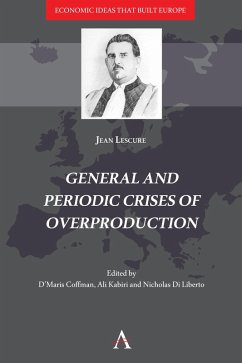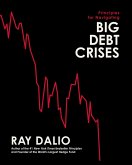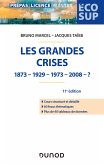Jean Lescure's two-volume General and Periodic Crises of Overproduction is a pioneering study of the causes and consequences of industrial crises in capitalist economies in the nineteenth and early twentieth centuries. The author, who held doctorates in political economy and law, is most remembered as a founder of the French historical school and a staunch advocate of empiricism in the economic sciences. Lescure called his approach the 'complex historical method', by which he sought to revise classical and quantitative economic theory through the historical analysis and statistical observation of cyclical phenomena. Ever the controversialist, Lescure wrote in an engaging style, accessible to non-specialists and economists alike, and critiqued the leading monetary theorists of the period, insisting that observation of the movements in production costs, industrial orders and profits be given priority over circulation and credit in understanding the periodic crises of capitalist economies. In Lescure's view, crises were inevitable in both market and command economies and their onset and consequences were predictable with the help of the more detailed production statistics newly available to economists and entrepreneurs at the time. Observation of corporate profits, the margin between cost price and selling price, provided the means to predict crises and measure their impact, not only on industry and trade but also on the working classes who would endure unemployment and the many social ills that accompany it. Lescure, unlike many of the liberal economists of the time, was always careful to include in his historical account statistical analysis of unemployment figures, as well as those on crime, marriage and birth rates, homelessness and suicide. Although he remained sceptical of government intervention in the form of monetary policies adjusting the money supply, and lauded the success of industrial concentration and trusts in reducing costs and prices, Lescure admitted the state's role in the recovery of the 1930s, when social insurance schemes and investment in public works mitigated the worst effects of unemployment for industrial labour.
This treatise, which grew out of his doctoral work, was a lifetime project for Lescure, who updated it periodically over five editions, to include each new cycle of growth, crisis, depression and recovery. Volume one provides a historical study of economic crises from the post-Napoleonic period through the Great Depression and the recovery of the late 1930s.
Volume two offers a critique of the theories of crises, their causes and potential remedies, in which Lescure outlines his preference for 'organic' theories that focus on the production process and qualitative statistical observation of the movements in costs, selling prices, industrial orders and profits.
The text of the fifth edition appears here in English for the first time, unabridged and complete with editorial materials designed to help the English reader understand the work on its own terms and situate its author's prominent place in the history of economic thought.
This treatise, which grew out of his doctoral work, was a lifetime project for Lescure, who updated it periodically over five editions, to include each new cycle of growth, crisis, depression and recovery. Volume one provides a historical study of economic crises from the post-Napoleonic period through the Great Depression and the recovery of the late 1930s.
Volume two offers a critique of the theories of crises, their causes and potential remedies, in which Lescure outlines his preference for 'organic' theories that focus on the production process and qualitative statistical observation of the movements in costs, selling prices, industrial orders and profits.
The text of the fifth edition appears here in English for the first time, unabridged and complete with editorial materials designed to help the English reader understand the work on its own terms and situate its author's prominent place in the history of economic thought.
Dieser Download kann aus rechtlichen Gründen nur mit Rechnungsadresse in A, D ausgeliefert werden.









